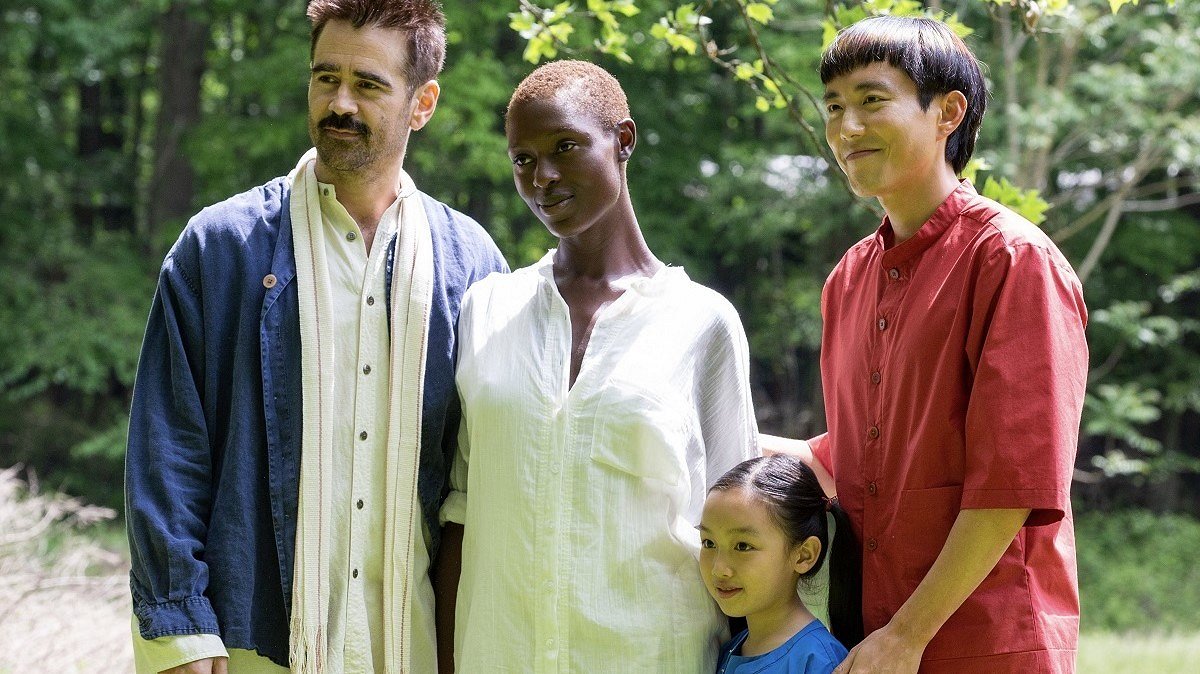Swords of the era. A weekly guide to the world of cinema
“Life Without Yang”
Discussions about artificial intelligence in the public space have become more relevant in the last decade – we hear something new almost every day or week. But artificial intelligence has been present in cinematography for almost a hundred years, if not more. For example, in the silent cinema, a robot endowed with a mind was already seen in the futuristic drama “Metropole” by the German film director Fritz Lang, which was released in 1927. Later, almost every couple of years, we have also seen humanoid robots in modern entertainment blockbusters (I assume that a large part of us remember Paul Verhoeven’s “Robocop”, which was often played on television). But the past decade has brought changes in the way artificial intelligence is portrayed in movies. Now computerized consciousness has moved from futurism, distant galaxies and laboratories to our everyday lives and homes. In movies, it helps to dispel loneliness (as, for example, in Spike Jones’ 2011 work “Her”) or enters the family as a peculiar helper.
This is exactly how the Korean-American director Kogonada portrayed artificial intelligence as an assistant in his latest film “Life without Yang”. The film’s title character, Yang, is an artificial intelligence assistant – a humanoid robot – purchased to help the family’s adopted daughter maintain her native connection to Asian culture. When Yang permanently shuts down at some point, confusion sets in in the family: the little daughter longs for him like a brother, but the father deals with this situation more pragmatically, as if some domestic system has broken. Both with a kind of discreet irony and in the course of emotional misunderstandings, the film reflects on both human nature and fitting into society and its various communities, especially outside of its place of origin.
As a side note, Kogonada is known for his video essays on cinema, which are available for free on YouTube in preparation for a screening. At a time when film scripts are written and analyzed by artificial intelligence, he chooses to focus on film as an artistic, deeply human and non-pragmatic activity.
In cinemas from May 19.
“Alcarasa”
Catalan director Carla Simon’s touching family drama “Alcarasa” is another film that depicts in its own way the sharp sword of age and progress. Alcaraz is a real town in Catalonia, where the story of the film takes place – a family of peach growers faces an unenviable choice: to stay on land for which there is no ownership contract, only a generation-old reputation among neighbors – they must give up peach cultivation and allow it to be built instead solar panel field. Maintaining solar panels is a more profitable way of making a living, but some of the family want to continue growing the peaches they’ve nurtured for generations.
“Alcaraz” – not only a family drama – is also a sunny nostalgia for an era that seems to have passed forever. This film marks the beginning of director Carla Simon’s career: it is only her second feature film, but it won the main prize at the Berlin Film Festival in 2022. The film is part of a trilogy: we have already seen the film “Frida’s summer” – a touching story about childhood and family relationships on the screens in Latvia, while the next one is still in the making. This film – basically a story about farmers, customs and inexorable change – shows in a way how similar the situation is for farmers and peasants all over Europe.
In the cinemas “Kino Bize” and “Splendid Palace” from May 19.
Cannes Film Festival
The 76th Cannes Film Festival begins on Tuesday, May 16. Historically established in the film industry as an event that puts new and promising talents on the cusp of fame. The main programs of the festival of the last decade, on the other hand, premiere the works of authors already considered classics. Young, promising and talented directors are mostly received with less publicity in the festival’s parallel programs “Critics’ Week” and “Directors’ Fortnight”.
This year’s main programs include Wes Anderson’s latest film “Asteroid City”, Martin Scorsese’s western “Killers of the Flower Moon”, a short film by Spanish cinema classic Pedro Almodovar and a seemingly peculiar tribute to the western genre “Strange Ways of Life”), as well as the latest film of the “Indiana Jones” series directed by American filmmaker James Mangold.
Although there are no Latvian films in the program, the classics program of the Cannes Film Festival includes the film “Hello, te es” by the Armenian director Frunze Dovlatyan, which has been restored under the care of the domestic studio “Lokomotīve”. “Lokomotive” once also restored the film “Four White Shirts” by Roland Kalniņš, which was also shown in the same program.
Highlight the text and press Ctrl+Enterto send the text fragment to be corrected to the editor!
Highlight the text and press on Report a bug buttons to send the text fragment to be corrected to the editor!
2023-05-15 12:50:09
#Swords #era #weekly #guide #world #cinema


